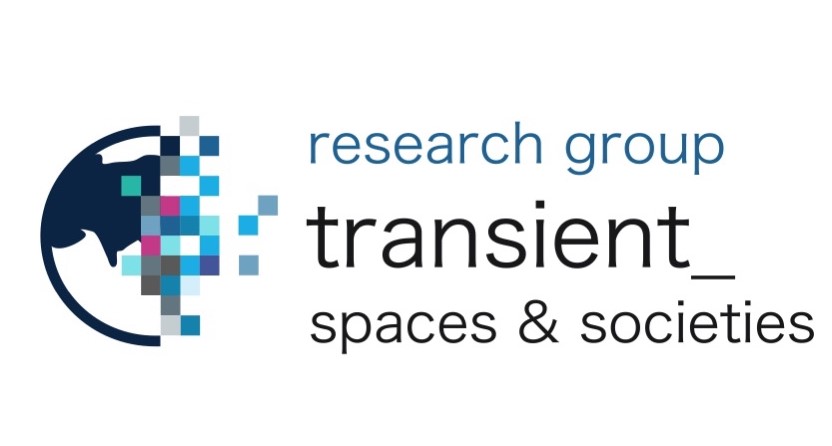BlogDigitisation
cON/FFlating spaces: On the intersections and conflation of our ONline and OFFline worlds
25. Nov.
2019
DOI: https://www.doi.org/10.34834/2019.0001
Key Words:
digital spaces
digital geographies
theories of space & place
When did you last schedule an offline meeting with friends without social media, navigate through an unknown physical location without a digital navigation system, relocate to a new place without previously obtaining information on it from online sources? Digital devices, media, and data have become pervasive features of the lives of many of us. What we are yet missing is a terminology that describes these (to varying degrees) interdependent, entangled, and CONFLATED ONline and OFFline spheres. Together with Brenda Yeoh (Bork-Hüffer and Yeoh 2017: 93) I suggested cON/FFlating situational spaces as a conceptual bridge for describing the increasingly inseparable intersections of the two spheres, and the spaces that emerge thereof.
Digital geographers have debated relationships between offline and online spaces since the end of the 1980s (see summaries of this debate, e.g., in Batty 1997; Dodge 1999; Graham 1998; Kinsley 2014; Kitchin 1998; Malpas 2008; Zook et al. 2004). Deterministic perspectives delineated digital space as either an abstract, parallel, fictional “spaceless place” (Ogden 1994: 715), or a borderless “network society” characterised by nodes and flows “dominating our economic, political and symbolic life”, whereby “the power of flows takes precedence over the flows of power” (Castells 1996: 412, 469). Alternative and more balanced conceptualisations depict, e.g., a “symbiotic relationship” (Kitchin 1998: 403), “convergence” (Imken 1999: 92), or co-creation (Massey 2005) of digital and physical spaces. Still, our terminology remains a separate one of offline/physical/material/bodily* spaces, on the one hand, and online/digital/virtual/cyber* spaces, on the other hand.
What are cON/FFlating spaces?
Through positing the concept of cON/FFlating spaces, my wish was to provide, first, a conceptual bridge for these new types of spaces that emerge out of the increasing digitisation of our lives.
cON/FFlating spaces are characterised by multifarious (power) relations, practices, knowledge, and (re)presentations that stretch across both, online and offline, spheres.
When scrutinising cON/FFlating spaces, the inimitable characteristics of offline and digital spaces are not to be dismissed. Their diverging spatialities (Crang et al. 1999), specificities, heterogeneities, and multiplicities (Massey 2005) need to be taken into account, concurrently. In line, we have defined the concept of cON/FFlating situational spaces as “intertwined, specific, and multiple digital and physical spaces” (Bork-Hüffer and Yeoh 2017: 93). By employing the active form (cON/FFlating space) rather than its passive counter piece (cON/FFlated space), the need to reflect and embrace the dynamics in these entangled spaces is stressed (space as process, cf. Massey 2005).
Second, I also call for an advancement of (mixed) method(olog)ical approaches suited to analysing these spaces. Together with my team of the Research Group Transient Spaces & Societies at the University of Innsbruck, I am currently working on developing mixed mobile methods for researching subject’s immersion in cON/FFlating spaces.
Notwithstanding, the access to, means to make use of, and subject’s position within cON/FFlating spaces is highly disparate and uneven (cf., e.g, Kleine & Poveda 2017, van Dijk 2005 for a discussion of digital inequalities). This means that the often-called-for, and in my eyes urgently needed, societal negotiation of rules for a constructive, and respectful interaction as well as being together in this world need not only to address the virtual sphere but also our throwntogetherness in cON/FFlating spaces.
References cited in the blog:
Batty, M. (1997). Virtual geography. Futures, 29(4/5), 337-352.
Bork-Hüffer, T., & Yeoh, B. (2017). The geographies of difference in conflating digital and offline spaces of encounter: Migrant professionals’ throwntogetherness in Singapore. Geoforum, 86(11/2017), 93-102.
Castells, M. (1996). The rise of the network society. Cambridge: Blackwell Publishers.
Crang, M., Crang, P., & May, J. (1999). Introduction. In M. Crang, P. Crang, & J. May (Eds.), Virtual geographies: Bodies, space and relations. London, New York: Routledge, 1-20.
Dodge, M. (1999). The geographies of cyberspace. Centre for Advanced Spatial Analysis, University College London, Working Paper Series 8. http://eprints.ucl.ac.uk/266/ (Retrieved 12. January 2011)
Graham, S. (1998). The end of geography or the explosion of place? Conceptualizing space, place and information technology. Progress in Human Geography, 22(2), 165-185.
Imken, O. (1999). The convergence of virtual and actual in the Global Matrix: artificial life, geo-economics and psychogeography. In M. Crang, P. Crang, & J. May (Eds.), Virtual geographies: Bodies, space and relations. London, New York: Routledge, 92-106.
Kleine, D., & Poveda, S. (2017). Digital divide. In D. Richardson, N. Castree, M. F. Goodchild, A. Kobayashi, W. Liu, & R. A. Marston (Eds.), The International Encyclopedia of Geography: Wiley, digital version paging: 1-5.
Kinsley, S. (2014). The matter of ‘virtual’ geographies. Progress in Human Geography, 38(3), 364-384.
Kitchin, R. (1998). Towards geographies of cyberspace. Progress in Human Geography, 22(3), 385-406.
Malpas, J. (2008). New media, cultural heritage and the sense of place: Mapping the conceptual ground. International Journal of Heritage Studies, 14(3), 197-209.
Massey, D. (2005). For space. Los Angeles, London, New Delhi, Singapore, Washington DC: Sage.
Ogden, M. R. (1994). Politics in a parallel universe: Is there a future for cyberdemocracy? Futures, 26(7), 713-729.
van Dijk, J. (2005). The deepening divide: Inequality in the information society. Thousand Oaks, London: SAGE.
Zook, M., Dodge, M., Aoyama, Y., & Townsend, A. (2004). New digital geographies: Information, communication, and place. In S. Brunn, S. Cutter, & J. W. Harrington, Jr. (Eds.), Geography and Technology: Springer Netherlands, 155-176.
* There are significant differences between these terms, yet their discussion is beyond the scope of this blog entry.
Related articles:
The geographies of difference in conflating digital and offline spaces of encounter …
(Cyber)Bullying in schools – when bullying
stretches across cON/FFlating spaces
Kollektivität in und durch cON/FFlating spaces
DOI: https://www.doi.org/10.34834/2019.0001
This Blog is published under a CC BY 4.0 license. You are allowed to share and adapt this content under these conditions.
Tabea Bork-Hüffer works on how practices and power relations shape spaces, cities, and societies, especially in relation to three interconnected processes: urbanisation, mobilities, and digitisation. Throughout the last 15 years Tabea Bork-Hüffer has worked on particularly quickly changing regions, urban, and cON/FFlating spaces in Southeast and East Asia (Singapore, Malaysia, China) as well as Central Europe (Austria, Germany). Her work as geographer is characterised by an interdisciplinary outreach and a focus on cross-sectional topics.
→ Homepage
© 2024
Research Group Transient Spaces & Societies
Geographisches Institut Innsbruck
Innrain 52, 6020 Innsbruck
Relevant links:







